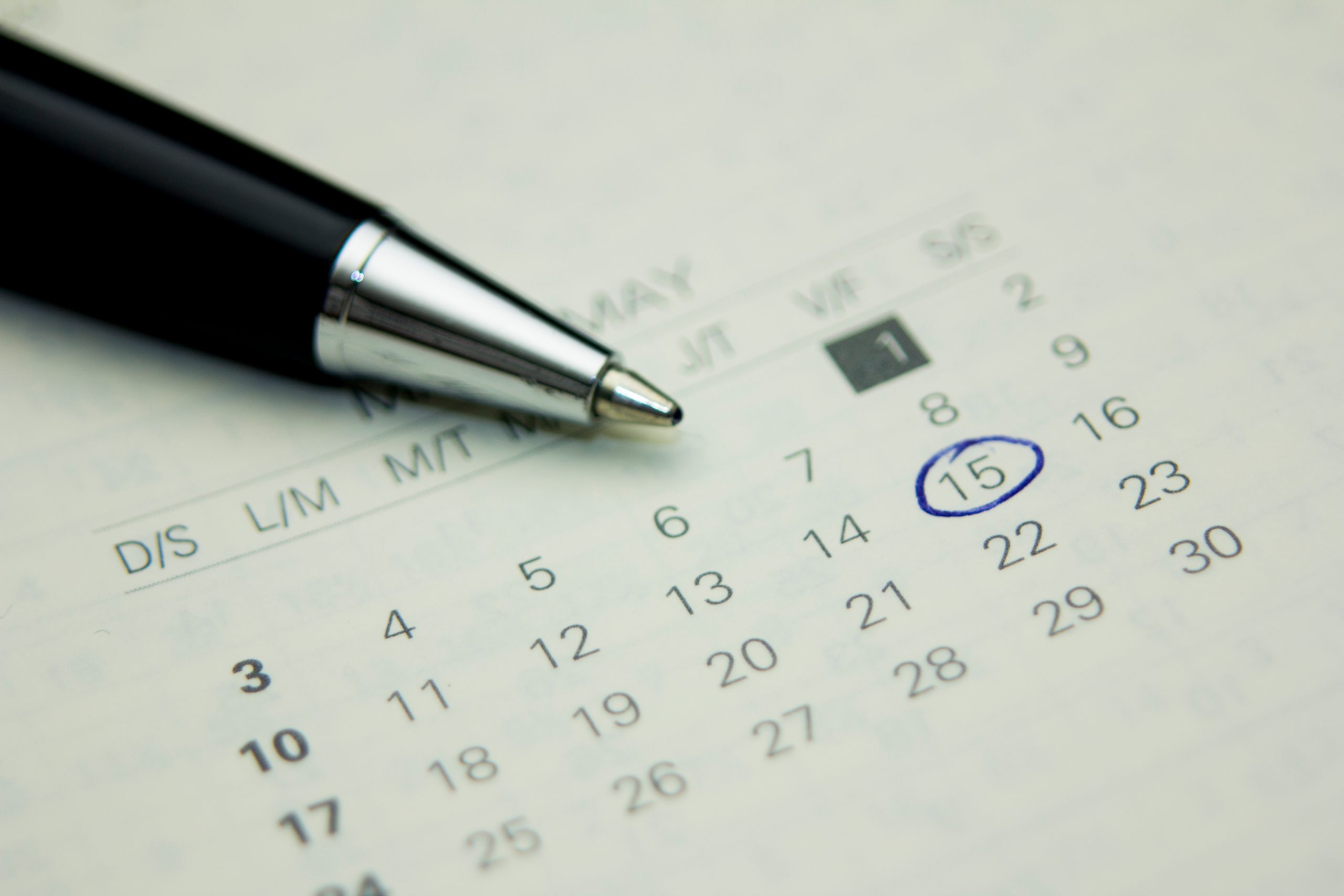Are you struggling to budget your income every two weeks? Wondering how to manage your expenses while receiving a bi-weekly paycheck?
Bi-weekly budgeting can be challenging; however, it can ensure better financial planning and help you achieve your short-term and long-term goals. In this blog post, you will discover the best ways to budget bi-weekly and be provided with useful tips to manage your finances efficiently.
In this article, you will see how to analyse your income, list your expenses, prioritise your expenses, stick to your budget, and make flexibilities and adjustments. You will also find the benefits of bi-weekly budgeting and why it is crucial to achieving financial stability.
So, whether you’re a beginner or a seasoned budgeter, you’ll find valuable insights and practical tips that will help you start budgeting like a pro.
Analyse Your Income
Bi-weekly budgeting starts with analysing your income. Be mindful of your total income for the month. It’s essential to know if it is fixed (the same amount each month) or irregular (amount changes each month).
Determine Your Total Income for the Month
The first thing you need to do when planning your budget is to determine your total income. This includes all sources of money you receive during the month. Your total income may come from a full-time job, part-time work, investments, rental properties, or other sources.
To determine your total income, add up all the money you expect to receive during the month. If you have a fixed amount of money that you receive each month, this step will be easy for you.
Constant or Irregular?
After determining your total income, identify if it is a consistent amount or if it varies. If you have a fluctuating income, you need to be careful with your spending habits and make sure to adjust your budget accordingly.
Here are some examples of a consistent income:
- Employees that get paid bi-weekly or twice per month can estimate their monthly income by multiplying it by the number of pay periods in a month (generally 2, but there will be two times in the year where you will receive 3 pays!).
- People that receive a monthly salary with no overtime or commission can divide their annual salary by 12 and allocate it evenly throughout the year.
Here are some examples of an irregular income:
- Farmers
- Freelancers
- Contract workers
If you have an irregular income, it’s important to keep track of your income and expenses so you can adjust your budget on a month-to-month basis. Start by taking the average of your income from the previous few months, and use that as a guideline to build your budget around.
Knowing your income status is the first step to effective bi-weekly budgeting. It is important to have a clear understanding of how much money is coming in and how much you can allocate to expenses for successful budget planning.
List Expenses
One of the most crucial steps in the bi-weekly budgeting process is to make a comprehensive list of all of your expenses. This would include everything from household bills and groceries to recreational activities and gym memberships. Here are some subtopics to keep in mind when brainstorming and organising your expenses.
Essential Expenses
First and foremost, it is essential to account for all of your necessary expenses. These include rent, electricity and bills, transport costs, health insurance, and groceries. Allocate enough funds to cover for these expenses before moving forward to the next category in your budget.
Discretionary Expenses
After identifying the essential expenses, it is time to account for the discretionary ones. Discretionary, or non-essential, expenses include eating out, entertainment, and any other expenses that aren’t mandatory. It’s important to keep track of these expenses and avoid overspending to ensure that you stay within the budget. Discretionary expenses should be evaluated on a case-by-case basis, and you should limit your spending in this category as much as possible.
Categorise Expenses
Once you have your list of expenses, it’s essential to categorise them appropriately. Some common categories include housing, utilities, food, transportation, and entertainment. If you’re unsure about how to categorise certain expenses, consider looking at your past spending to see how those expenses were categorised previously. The more organised you are when categorising your expenses, the easier it will be to create your budget.
By taking the time to organise and categorise your expenses, you can gain a better understanding of where your money is going each month. This will help you make informed decisions when it comes to budgeting and prioritise your spending habits accordingly.
Prioritise your Expenses
Differentiating between Fixed and Variable expenses
Before prioritising, it is essential to distinguish between fixed and variable expenses. Fixed expenses are those that remain constant every month, such as rent, subscriptions, and loan payments. Variable expenses, on the other hand, are those that change monthly and can be adjusted, such as groceries, petrol, and utility bills.
Prioritise essential expenses
Essential expenses include food, housing, transportation costs, and utilities, among others. These expenses should be increased in priority as they are necessary for survival. You must ensure that you have enough money to cater to all the essential expenses before considering other expenses.
Limit discretionary expenses
Discretionary expenses are expenses that are not necessary for survival, such as eating out, entertainment, and hobbies. It is essential to limit these expenses or eliminate them entirely when adjusting to a bi-weekly budget. A good way to handle discretionary expenses is to allocate a certain amount of money to each category and stick to it, making adjustments when necessary.
Create And Stick To A Budget
Creating a budget helps in better financial organisation. Below are some tips to create and stick to a bi-weekly budget effectively.
Set a limit on your expenses as per your priority
Based on your essential and discretionary expenses, determine a limit or cap on your expenses. Limiting expenses will help in allocating funds efficiently.
Allocate funds to different categories
Assigning funds to different categories helps in keeping track of expenses and balancing the budget. Allocate money for groceries, bills, rent/mortgage, savings, and discretionary expenses. Track your spending for each category and reduce or adjust accordingly.
Plan for future expenses
Budget planning should also consider future expenses, such as emergency funds, repairs, and health care expenses. Plan for the future by allocating some amount to these categories so that you are prepared when these expenses arise.
Keep track of your expenses
Keeping track of your expenses regularly is an essential factor in sticking to your budget. You can use various budgeting tools and apps to record your expenses. Review your expenses regularly to ensure you are sticking to your budget.
Overall, creating and sticking to a bi-weekly budget can be challenging, but it ensures efficient allocation of funds and a stress-free financial life.6. Flexibility and Adjustments
Once you have created your bi-weekly budget, it is important to stay flexible and make adjustments if necessary. Here are some subtopics that can help you stay on track with your bi-weekly budget:
Review your budget periodically
It is important to periodically review your bi-weekly budget to ensure that you are on track with your spending. Look for areas where you may have overspent or underspent. You can use budgeting apps or spreadsheets to track your expenses.
Adjust and prioritise if necessary
If you find that you have overspent in one category, then you may need to adjust and minimise your expenses in other categories. Prioritise the essential expenses and try to cut down on discretionary spending. For example, you can reduce the number of times you eat at restaurants, avoid impulse purchases and find cheaper alternatives to your regular brands.
Be flexible in planning
Your bi-weekly budget may not always go according to the plan and may require flexibility. Emergencies such as medical expenses or car repair bills may pop up and cut into your budget, but you need to adjust accordingly. Re-prioritise your expenses and avoid using credit cards unless it’s absolutely necessary.
Maintain good budgeting habits
Maintaining good budget habits is crucial. You need to restrict your spending so that you don’t get into debt and stay within your budget limit. Plan and allocate your funds for every expense category. Stick to your budgeting plan to achieve your financial goals.
In conclusion, staying flexible and making necessary adjustments to your bi-weekly budget will help you stay within your spending limits and achieve your financial goals.
Bi-weekly Budgeting Benefits
Bi-weekly budgeting is an effective way of keeping track of your finances while reducing stress and achieving financial goals.
Here are a few benefits of bi-weekly budgeting:
Better budgeting
With a bi-weekly budget, you can better manage your finances because you are tracking expenses and income more frequently. This gives you more control over your spending, meaning you can plan for future expenses and allocate funds to specific categories. Without a budget, it can be difficult to know how much money you need to set aside for bills, groceries, and other expenses.
Reduced stress
Bi-weekly budgeting can significantly reduce financial stress. When you plan ahead and allocate funds to your expenses, you can avoid running out of money before your next paycheck. This gives you peace of mind and allows you to focus on other important things in your life.
Helps in achieving financial goals
Sticking to a bi-weekly budget can help you achieve your financial goals. You can set aside funds for emergencies, pay off debts, or save for a vacation. When you have a clear picture of where your money is going, you are better equipped to make smarter financial decisions and achieve your goals.
In conclusion, bi-weekly budgeting is an effective way of managing your finances. It helps you track expenses, reduce stress, and achieve financial goals. By implementing a bi-weekly budgeting strategy, you can take control of your finances and take steps towards financial freedom.
Summary: Bi-Weekly Budgets
Creating a bi-weekly budget can help you take control of your finances and plan for the future. By taking the time to analyse your income and expenses, prioritise your expenses, and create a budget that works for you, you can reduce your financial stress and achieve your financial goals.
Recap of the points discussed
- Definition of bi-weekly budgeting and its importance
- Analyse your income and list out your expenses
- Prioritise your expenses by categorising them as essential and discretionary
- Create a budget and stick to it by allocating funds to different categories
- Periodically review your budget and make adjustments accordingly
- Budgeting provides numerous benefits, such as reducing stress and helping you achieve financial goals
Remember that budgeting is an ongoing process, and it takes time and practice to master. The key is to be flexible and willing to adjust your budget as necessary to adapt to changing circumstances. By making bi-weekly budgeting a habit, you can achieve financial stability and peace of mind.

